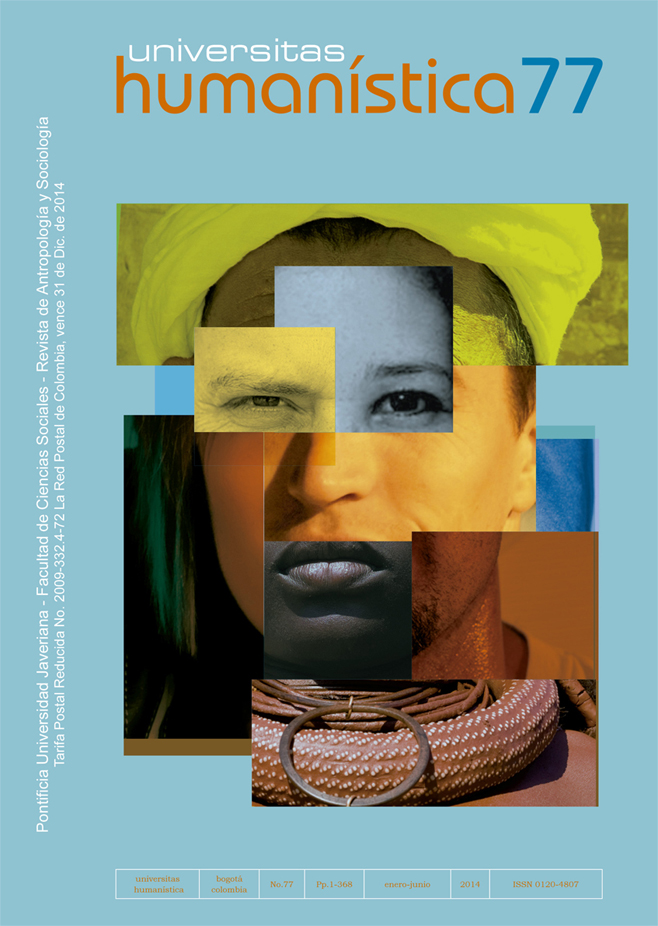Abstract
From the study of articles published in Colombian magazines (particularly Cromos magazine) in the second half of the twentieth century, this article proposes the analysis of some representations about upward mobility of black people. Consideration is given to the stories of some characters at different times: the judge Jose Antonio Camacho, the boxer Kid Pambelé, the model Laura Mosquera
and the pianist Teresa Gómez. Although they emerged in different professional contexts, narratives about their paths have in common the emphasis on how the class representations articulated with the race and gender ones and were used to show the difficulty for a black person to be inserted in a
social context different from the popular sectors, showing both their alleged incompatibility with the values of the middle class as well as the inability to fully integrate into a society dominated by whites.

This journal provides immediate open access to its content on the principle that making research freely available to the public, encourages greater global exchange of knowledge.
The journal Universitas Humanística is registered under a Creative Commons Attribution 4.0 International Public License. Thus, this work may be reproduced, distributed, and publicly shared in digital format, as long as the names of the authors and Pontificia Universidad Javeriana are acknowledged. Others are allowed to quote, adapt, transform, auto-archive, republish, and create based on this material, for any purpose (even commercial ones), provided the authorship is duly acknowledged, a link to the original work is provided, and it is specified if changes have been made. Pontificia Universidad Javeriana does not hold the rights of published works and the authors are solely responsible for the contents of their works; they keep the moral, intellectual, privacy, and publicity rights.
Approving the intervention of the work (review, copy-editing, translation, layout) and the following outreach, are granted through an use license and not through an assignment of rights. This means the journal and Pontificia Universidad Javeriana cannot be held responsible for any ethical malpractice by the authors. As a consequence of the protection granted by the use license, the journal is not required to publish recantations or modify information already published, unless the errata stems from the editorial management process. Publishing contents in this journal does not generate royalties for contributors.


